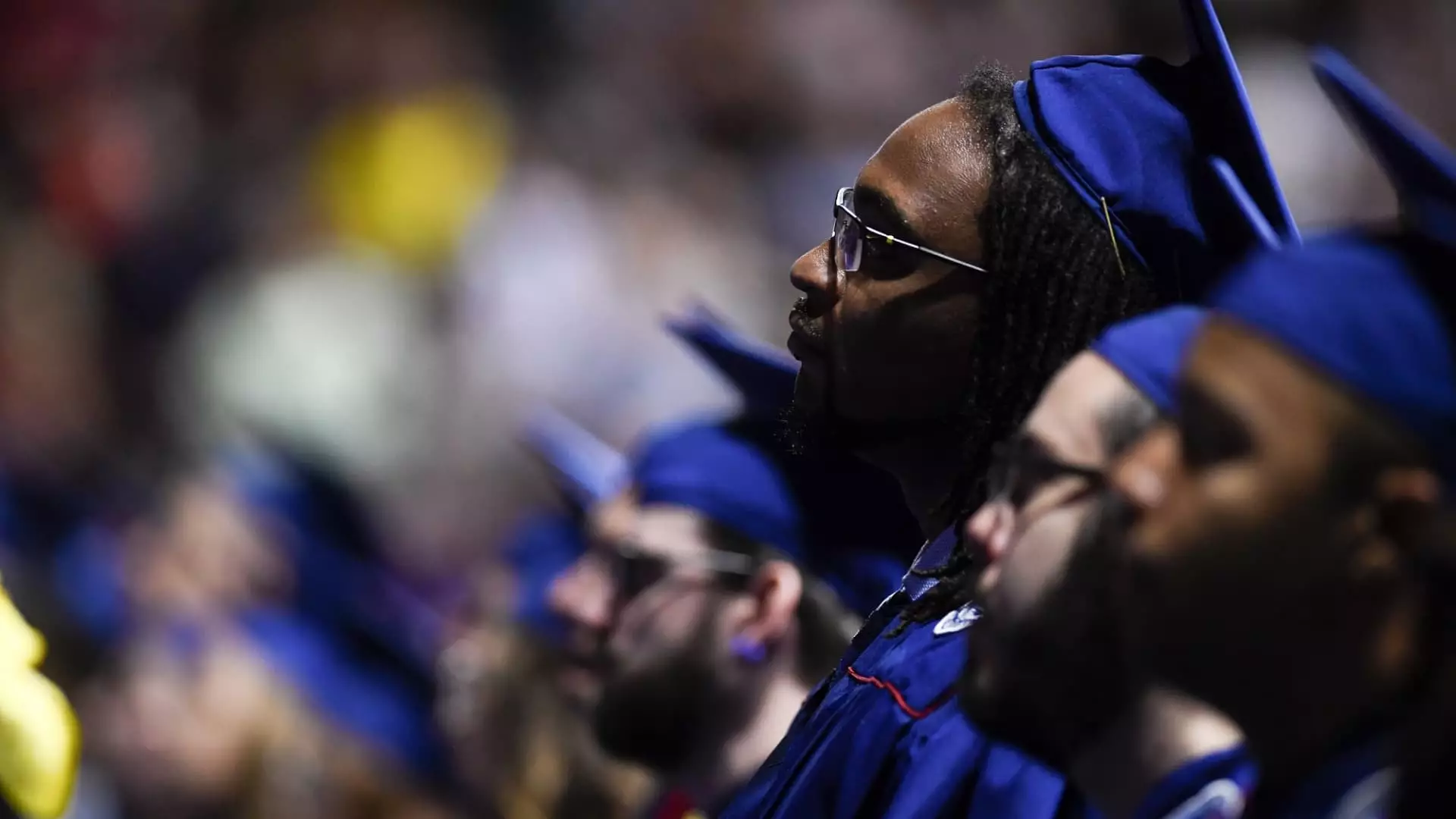In an era where STEM (Science, Technology, Engineering, and Mathematics) fields have long been heralded as the ultimate pathway to financial security post-college, recent data reveals a startling contradiction. Graduates in humanities disciplines such as art history, philosophy, and nutrition are not only securing jobs but thriving in the current economic climate. This counter-intuitive trend raises questions about the rigid narratives we’ve been fed—narratives that place a higher premium on scientific and technical majors. It seems that the university experience is about so much more than merely acquiring status or lining up a fat paycheck right out of the gate.
The Federal Reserve Bank of New York’s recent report exposes a glaring miscalculation in the societal value we assign to different fields of study. With unemployment rates of 6.1% and 7.5% for computer science and computer engineering graduates, respectively, the traditional wisdom that a STEM degree guarantees economic stability is being put to the test. In contrast, a strikingly low unemployment rate of 0.4% for nutrition majors suggests that the market is seeking skills that extend beyond coding and complex engineering principles.
A Rising Demand for Critical Thinking
As we grapple with a rapidly changing job market influenced by artificial intelligence and shifting consumer needs, the qualities that market leaders are now valuing seem to be rooted in creativity and critical thinking—traits often nurtured in humanities programs. Robert Goldstein, COO of BlackRock, openly recognizes this shift: “We have more and more conviction that we need people who majored in history, in English, and things that have nothing to do with finance or technology.” The demand for graduates equipped with soft skills is unmistakable and reveals an unexpected turn in hiring strategies. In a corporate environment increasingly dominated by data, the ability to think critically, articulate clearly, and innovate creatively has become invaluable.
It’s worth noting that this trend does not diminish the remarkable technical skills of STEM graduates. However, an over-reliance on their capabilities could lead industries into an intellectual quagmire, where creativity takes a backseat to analytical logic. Just as companies are rapidly adapting to new technological paradigms, they must also embrace diverse educational backgrounds to foster a well-rounded workforce capable of anticipating and navigating tomorrow’s challenges.
The Healthcare Sector: A Beacon of Stability
In the face of economic uncertainty, the healthcare sector stands as a glaring exception, demonstrating resilience amidst national fluctuations. With an unemployment rate of just 1.4% among nursing graduates and the prediction of steady job growth in health-related fields, one can’t help but underscore the vital importance of this discipline. The increasing job security for nurses is not merely a statistic; it reveals our society’s fundamental need for care and compassion—a need that transcends economic cycles.
Yet, even as healthcare continues to draw the attention of many students, the rising interest in liberal arts cannot be overlooked. While nursing may offer a more conventional route to job security, students armed with skills from humanities programs are emerging with an ability to navigate complexities often unaddressed by their STEM counterparts. In an unpredictable economic landscape, the fusion of care and creative thinking might just be the holy grail we didn’t know we were looking for.
A Paradigm Shift in Value Perception
The labor market’s evolving preferences compel us to re-evaluate the metrics by which we deem educational paths successful. There is a mismatch between conventional wisdom and the realities that graduates are facing as they step into the labor force. While pursuing a STEM degree may seem like the safest bet, the current landscape reveals that success is not only measured in immediate earnings but also in long-term job satisfaction and adaptability.
As the job market grapples with new trends such as remote work and digital transformations, students should consider a more holistic approach to their education—one that balances both technical proficiency and soft skills. The implication here is profound: educational institutions need to reflect this shifting landscape by cultivating adaptable, inventive thinkers ready to tackle multifaceted challenges.
The student ready to dive into the nuances of human experience—whether through philosophy, art history, or nursing—may actually possess an edge, proving that the value of a degree extends beyond mere employment statistics. The tides of change are upon us; the educational narratives we repeat must evolve to meet the demands of the future.


Leave a Reply